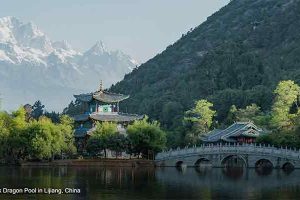
Original in Bangla: Professor Dr. Anisuzzaman
Translation: Umme Kulsum Keya
Gazi Abdullah-hel Baqui is a contemporary Bangladeshi educator, poet, translator and above all a Rubai composer. His more than 1500 (fifteen hundred) self-composed Rubaiyat in Bangla, published in two volumes, have already attracted the attention of the learned ones and the Rubai lovers. It is also known that the third volume containing more than 600 (six hundred) Rubaiyat is about to be published. Baqui’s Rubaiyat are the prime examples of the fact that Rubai, a unique jewel of Persian literature, can be interesting in its original form as in Bangla language. Such a short poem of four lines is as highly metaphorical in its linguistic variety of superb figures of speech as it is expressed in indirect and symbolic fervour. Moreover, Baqui’s Rubaiyat are paved with swinging rhythms. One day in the corridor of Dhaka University Arts Building, I came across this poet. After exchanging greetings, on being asked what is in his hand, he mentioned the title of the book Rubaiyat-i-Gazi Abdullah-hel Baqui and also said that he would send me a copy later on and accordingly he did that. After receiving the book, I read his Rubaiyat and after that I simply got amazed. At that moment I also thought of providing the reader with some analytical thoughts on such a book. Though it is late, the present effort is an example of that.
Poet Baqui’s Rubaiyat are full of variety of themes. The themes are spread all over the Rubaiyat. It is a bit tricky and difficult to find out them separately. Of the important themes are human love, divine love, nature, society, behavior, true, history and tradition of Bangla, anecdotes, world, instinct, philosophy, war, peace etc. The great poets seen in the world lean towards some philosophy and so while being poets they are identified as philosophers like Rabindranath, Khayyam, Rumi, Yeats, Iqbal etc. However, drawing philosophical expressions from the Rubaiyat of the said book, an attempt can be made to give a veiled shape. As Rubi poet says:
A vase said to a wife, ‘we are so much cared and valued,
`My beauty decorates the table while your beauty the room-interior.
When we get dry, love to us fades and the days of our meet vanish forever,
‘Our beautiful shapes turning into dust will be flying in the wind.’
(Volume1: Rubai No. 7)
In the above Rubai, the poet compares a vase to a particular wife of the world. This is a strange analogy. Just a vase decorates the table; the better-half is the vital part of the family decoration. Beyond the flow of time, love to them does not last long finally; their beauty and elegance turn into dust and fly away in the wind. This is the evolution of the decadent beauty.
In Rubai No.10 is about the mystery of creation; the poet says that the understanding of the Creator is a very simple matter. Mountains, forests, rivers, planets can never be made by humans on earth, but humans have made computers, submarines, robots etc. So, this philosophical statement speaks of the existence of Allah and this point is very reasonable. The poet’s clear idea is that knowledge is related to sin. It is just an irony that the forbidden sinful acts are done by the use of perverted knowledge and the sinners seek forgiveness from the Creator for that. So, it is tough to keep an account of how many times a day we are being expelled from the heaven; In this context, the poet says:
Our five eyes detect that sins and knowledge enter into an intimacy,
So, we humans are wise-sinners and seek forgiveness at last.
(Volume1: Rubai No. 30)
Rubai poet compares every human being to a grain of sand on the beach. And like waves, the multiple earthly troubles lead people to go backward and forward along the path of life. This factual philosophy of life is a living truth. Number 73 Rubai expresses this undeniable but absolute truth. If the inside of the body contains unholy matter, the body does not become unholy, but if a grain, or a drop of that very matter touches any outer part of the body, the body becomes unholy. This philosophy is true from the religious point of view. What is proved is that the vast nature surrounding the world around us is beautiful to look at but this smells foul and stinks. At this the existence of sin is proved. With different philosophical concepts, the Rubai poet employs shapes to different forms, meanings and theories to different Rubaiyat. According to him, all other knowledge is meaningless compared to divine knowledge. According to the poet, whether one believes it or not, regardless of the quantity, scope, the divine knowledge exists. If anyone denies divine knowledge, he is none but a dullard and a fool. Because the divine knowledge is the source of all knowledge; the divine knowledge leads to the path of truth and accomplishes the impossible, whereas in other knowledge, the wise-intelligentsia wander about in the whirlpool of conclusions losing right guidance. The problem is that the worldly knowledge can germinate pride in the heart of the wise; on the other hand, where the epistemology of all knowledge and love for pride gets destroyed, at that moment, the divine knowledge can be transmitted. This philosophical argument of the poet appears to me appropriate and true. In Rubai No. 187 the poet says:
Knowledge is insufficient compared to the continuous flow of eternity.
A man is trapped within limits but his pride seeks salvation.
But, the poet has opined that if one becomes wise in the knowledge of love, then all theories can be easily assimilated. So, the poet is reluctant to imbibe any amount of knowledge from any special studies at this moment. He said in a slightly ironic tone:
` This world gets perturbed in the strong debate-battle of the wise men,
The rank illiterate including myself deliver words out of deep theology.
Wearing the mask of the wise, we grow talkative and mind remains apathetic.
If we can be wise in the knowledge of love, then all theories bear fruits.’
(Volume1: Rubai No. 440)
A short philosophy is described in Rubai No. 235 and that is without the lofty buildings, the valuable assets, luxury, valuable articles and wealth etc., this beautiful world of ours can run, but without good hearts and good people, the world cannot run. In one word, the world will go on without good things but the world will not go on without good people. In the words of the poet:
‘The world will not go on without good people and that is the opinion’.
Another view of the poet is commendable and that is that the world is peopled with the wise and the fool but they walk in a single uneven line. The entanglement of something cannot be easily and completely untied, because when the wise approaches to untie, the fool creates so many obstacles. Therefore, everything remains uneven, unresolved forever, nothing emerges in full form. Consequently, the truth is distorted. We find this reflected in one of Omar Khayyam’s Rubai:
`You must surrender to the efficient hands of the wise,
You must remain ten yards away from the worthless souls.
If a wise man offers you poison, you will drink it,
But, you will throw away the potful of nectar offered by a dullard.
(Bangla Tran: Kazi Nazrul Islam, rendered into English by the translator).
Imperfection is the companion to man, so the poet says that if you try to blossom something with a generous mind, a clear conscience, an impatient pen, etc., even if you notice a deficiency somewhere, perfection wavers but does not occur. As a result, dissatisfaction sits deep and is an eternal worldly practice. The poet has tried to widen the door of the thinking men’s knowledge and philosophy in his Rubaiyat with various facts; In addition, it cannot be exaggerated to say that he has been able to move ahead to find new doors to knowledge and philosophy through his original Rubaiyat. With proper observation and effort, gems may be available there. Generally, the oppressed stretch their hands to others; similarly, the rich always stretch their hands in different ways. One group does this out of sheer necessity and another out of quite unnecessarily. In the poet’s words: ‘By what rules do the poor and the rich in a row stretch their hands (No. 363)
Many things and the world can be changed but in the world, change in humans is not possible. If any potent and effective influence falls upon the human heart, then his outlook may change and his being may find a change in him. For example, the mystic influence of Shaikh Shams Tabriz could change the inner being of the Persian great mystic poet Rumi. Bangalee Rubai poet has very beautifully presented this important concept in Rubaiyat 378-380. On our paths we cannot walk along with our hopes and aspirations comfortably in the world. If we see the light or solution on the right side, the next moment darkness creeps in on the left. If the right leg moves forward, the left leg pulls back. This is the eternal conflict between forward and backward in the path of life which is expressed in Rubai number 498.
Another view of Baqui is very plausible. Actually, man is controlled by his instinct or Nafs. But this instinct is so uncontrollable that it is very difficult for the human conscience to control it, and often, it becomes impossible. As a result, the epidemic of injustice, tyranny, lawlessness, corruption and sin occurs in the society. According to the poet, this instinct is the root of such human pollution. But he suggests that only through strict observance of religious injunctions, this animal Instinct can be brought under control. In fact, if there were any other way, the control of instincts would have been possible by now. No. 538 is an excellent example of this.
As the Rubaiyat are based on various topics of discussion, the poet has reflected on varying degrees of knowledge; the beauty of his language is so attractive in its sweetness that it sways the heart as it is read and pondered over as if they flash across the eyes like living pictures. Such a resonant Rubai is cited below:
The teeth of the soil will be sucking the lips of the Beauties,
What venomous snake entangling their necks will snap on their chins?
Hyena-like insects will tear the flesh of their chests and devour the pieces,
Today the better-half is void of sensation where one day storm would blow.
(Volume1: Rubai No. 564)
The poet says that if a bird can be kept in a gold cage, and for long it is confined there, but the moment it gets release, it will immediately fly out and sit on a branch of a nearest tree, because its heart is tied to the heart of the tree: Moreover, its love is directed towards its root and the Creator is its Master. But, at present people forget everything during modern time and become taken aback. A comparison is made between tigers and humans in Rubai No 680. The tiger by nature is ferocious, and it nurtures and exercises its ferocity for no other reason than to satisfy its hunger, which is the eternal trait of its character, but the learned man cherishes and nurtures violence and anger in his heart and exhibits more brutality than a tiger. The poet is a citizen of the modern world, so through his Rubaiyat, various horrific images of the modern era have emerged. His 684 Rubai is as follows:
No one knows for whom the fleet is running far away,
The womb of the future is filled with the surge of satirical laughter.
There is no profit recalling the past, it just offers a basket of woes as gift,
At present, the city is in ruins, the bosoms of the cities are rotting away.
In this connection, it may be said that the present Rubai composer is undoubtedly a modern poet. Modernity does not mean that poetry should be composed only without rhyme and rhythm i. e. free verse. The poet said, ‘In this sorrowful age of globalization, life is going on automatically. (No. 686)
The poet’s discovery of a philosophy is excellent. That is, he searches light everywhere and finds energy latent in water, metal, liquid, even in ash. There is, however, only a stream of light in man as a living being, but it needs to be reflected, which is portrayed in Rubai No. 740. Rubai No. 750 is an utterance of an incontrovertible truth, including an oblique view of reflections that sneer at the modern-day warlords:
A fool asked ‘what is the purpose of erecting two buildings’?
The wise said, in one building, the shells and bullets are produced.
Where in the other, the war-injured humans undergo treatment and nursing,
Feeling perturbed the fool said loudly, ‘Alas, this knowledge is worthless’!
According to the poet, there is no great and perfect knowledge in the world as to know oneself properly (Rubai No. 777). Humans are the best creatures in this world, but they are destroying themselves. Also, there are natural hazards and disasters. Rubai No. 88 is one of such examples. The poet is attracted and bound by the concern of divine philosophy. From this philosophy and love his soul will be freed. This is, in fact, his sincere belief. This subtle matter is the inexhaustible product of the religious spirit which cannot be had without a loving the devoted soul. So, the poet’s love and divine love is the essence of his philosophy of life which is so beautifully expressed in the following Rubai verses:
I tell you the truth for what reason I am running behind the Sharab nectar,
I want to wash away the evil designs from mind for having purified love.
And it also effaces the dark spots long frozen in the chest,
There is no such nectar under the blue canopy in the world.
(Volume II, Rubai no. 131)
According to the poet, the most of pains in life are the outcome of evil knowledge and designs. Employing artistic choice of words, the poet says in a beautiful Rubai that a hundred people cannot make one person good, but a bad man can turn a hundred men into bad:
One man cannot make a hundred people good,
But one man can turn the hundred people bad. (Volume II-Rubai no. 176)
According to the poet, the place of the pious is behind the lover because the pious want to enter into the heaven, but the lover wants to have love or the beloved. Rubaiyat Nos. 636 and 639 of Volume II present a unique vision. The point is that if an idea is born, then, according to the poet, the reality of that idea must exist. That is, if there is an idea, it will have its truth and existence. For example, the formless something is beyond the grasp of touch, but has its reality such as the presence of mild air which is not perceptible even by the senses:
In what abstract shape the fragrant air and the flow of light are created?
To find out this network of mystery all wisdom and knowledge keep silent.”
(Volume II, Rubai No. 659)
The poet compares human life to the wobbly form of water collected on an arum leaf. As the morning sun rises, the water slowly dries up. Similarly the human life oscillates on earth and one day will dry up and totally disappear. (Volume II, Rubai No. 723) Apart from climate and noise pollution, the poet finds pollution in many other things in the modern age—such as character pollution, speech pollution, mood pollution and above all human pollution. The poet’s worldly philosophical doctrine is thus reflected in several Rubaiyat. Using the easy movement of language, the poet’s thoughts and ideas are expressed through the transmission of literary flavor in different ways. A Bangladeshi poet writing such Rubaiyat having aesthetic beauty in Bangla literature is truly commendable. His Rubaiyat are undoubtedly an invaluable addition to Bangla literature as well as a part of mystic literature of the world.
But, I believe that a good number of his Rubaiyat reveal his concept of divine love and spiritual philosophy which is truly a part of Bangla mystic literature. So far I think this poet follows the style and rhythm of the Rubaiyat of Omar Khayyam, a renowned poet in Persian literature and is inspired by the great mystic poet Jalaluddin Rumi’s theology. Nevertheless, the poet emerges with his own characteristics. So, it will not be an exaggeration to say that he is the Rumi of Bangla literature. With this, I conclude this short article citing Rubai No. 754.
The dreams of you are so many but these are remaining as dreams,
You brother, drink Sharab and see those occurrences that would must occur,
Maybe the ice may melt in the fire of the heart in sleep,
Holding the hand of Saki you crush the greedy she-friend into pieces.
*Former Professor, Department of Philosophy, Dhaka University, At Present
Vice-Chancellor, Global University Bangladesh, Barisal
*Masters of Education TESOL, University of South Australia






